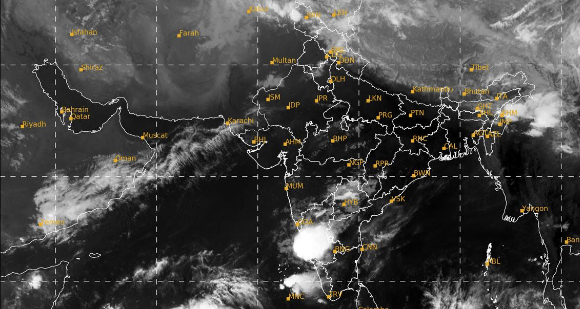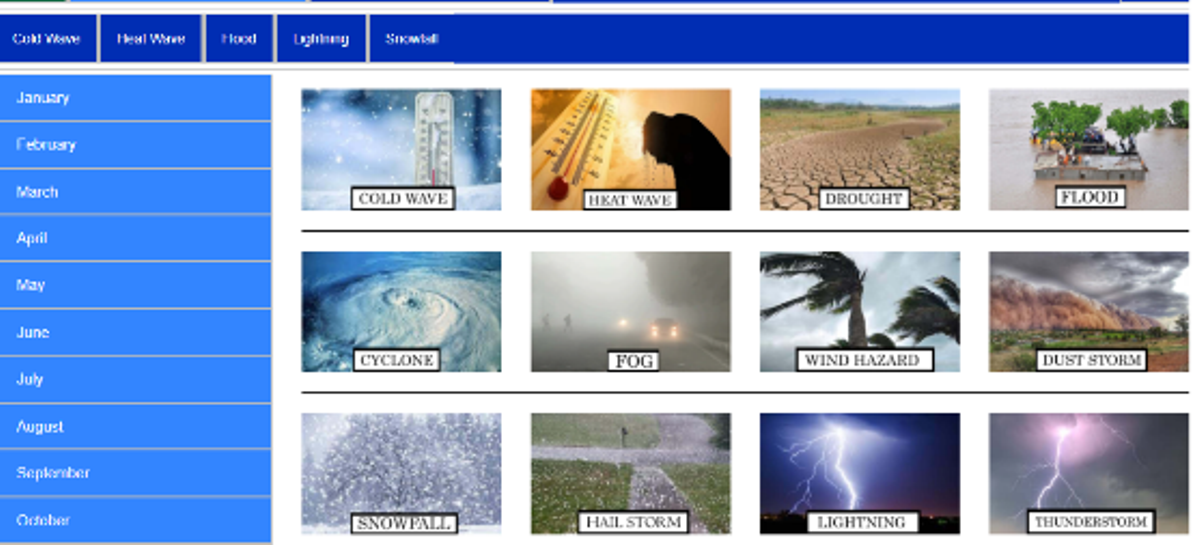The year past us was characterised by a slew of extreme weather events. Now, a new study has shed light on a disquieting correlation: Many of these occurrences were in line with predictions of a warmer world due to climate change. The study, by a team of atmospheric scientists, analysed the unprecedented frequency and intensity of extreme weather phenomena across the globe
 KRC TIMES Desk
KRC TIMES Desk

The year past us was characterised by a slew of extreme weather events. Now, a new study has shed light on a disquieting correlation: Many of these occurrences were in line with predictions of a warmer world due to climate change. The study, by a team of atmospheric scientists, analysed the unprecedented frequency and intensity of extreme weather phenomena across the globe in 2023: From devastating wildfires to record-breaking heatwaves, and from erratic precipitation patterns leading to floods and droughts to powerful tropical storms.
One of the key findings is the undeniable alignment between these extreme events and the long-standing predictions made by climate scientists. As greenhouse gas emissions continue to rise, Earth’s climate system is being pushed to its limits. While it has long been established that a warming climate exacerbates the intensity and frequency of such events, the empirical evidence underscores the urgency of addressing climate change mitigation.
Also, the ramifications of these events extend far beyond environmental concerns, encompassing socio-economic, humanitarian and geopolitical dimensions. Vulnerable communities bear most of the brunt, and disruption of essential infrastructure and supply chains amplifies the challenges. In the face of these sobering revelations, concerted action is imperative to mitigate the impacts of climate change. This entails not only reducing greenhouse gas emissions through transitioning to renewable energy sources and implementing sustainable land-use practices, but also investing in adaptation strategies to cope with the unavoidable effects of a changing climate.
One such initiative is the issuance of tailored advisories by meteorological agencies to assist farmers in mitigating the impacts of climate variability on agricultural productivity. In this regard, the IMD has taken proactive steps, leveraging advanced forecasting techniques and agronomic expertise. By harnessing data-driven insights and employing localised approaches, these advisories offer valuable guidance to farmers regarding optimal planting schedules, irrigation management, pest and disease control and crop selection.
The IMD’s initiative exemplifies the importance of integrating scientific knowledge with practical solutions to address the multifaceted challenges posed by climate change. By empowering farmers with actionable information and tools, such initiatives not only enhance agricultural resilience but also contribute to sustainable livelihoods and food security. As we navigate the complexities of a changing climate and its far-reaching implications, collaboration and innovation emerge as indispensable pillars for building a more resilient and sustainable future. By heeding the warnings conveyed by atmospheric science studies and embracing proactive measures at local, national and global levels, we can strive for a world where the impacts of extreme weather events are mitigated, and communities are empowered to thrive in harmony with nature.






